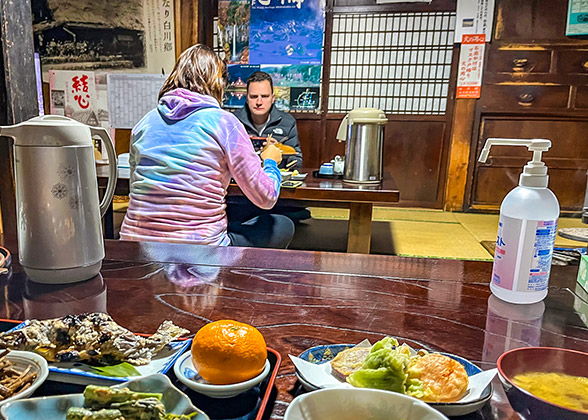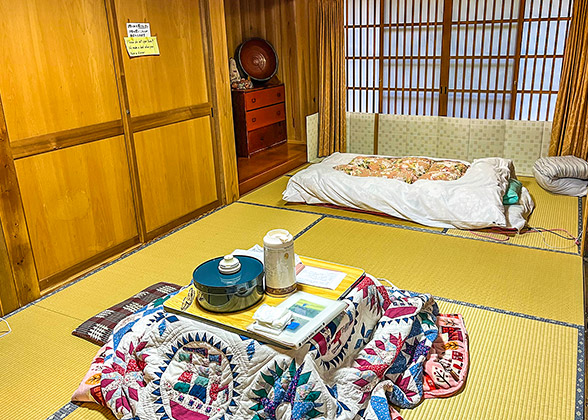Hakone Onsen Tips
Hakone is famous for its numerous onsens. Here are some tips for bathing onsen.The procedures of bathing onsen
Japanese people are accustomed to taking a shower before bathing onsen. Usually, you can take towels with you, but please do not take smartphones or clothes. To adapt to the temperature, gradually soak your body into the spring water or put towels on your forehead. For your health, remember to replenish water after bathing onsen.Reserve the private onsen at least one month beforehand
If you want to bathe onsen without the embarrassment of staying with strangers, the private onsens are the better choice. Private onsens usually need reservation at least one month beforehand as there are always many tourists across the year, especially the traveling peak seasons. Some onsens can be reserved both online and through telephone, while some only through telephone. Most shared onsens don’t need a reservation.Better to book an onsen hotel with meals and rooms included
Hakone onsen can be divided into two kinds. One only provides bathing onsen service and has no accommodation or meals. The other includes onsen bathing, accommodation, and meals. It is advised to choose the second one, as some onsens are located remotely, thus hard to find restaurants or convenience stores.
|
|
|
How much does the onsen cost in Hakone?
The basic fees for bathing onsen include towels, bathrobes, and bathing pool reservations. Private onsens are more expensive than shared ones. The larger the private onsen pools, the higher the prices. In addition, the average expenditure in luxury onsen hotels is generally higher. The price of high-end onsen hotels is about 43,000 yen per night and luxury onsen hotels over 54,000 yen per night.Below is the price table of one common onsen hotel on common days. It is only for reference.
| Towels | Free |
| Bathrobe | 100 yen |
|
Shared Onsen |
1,600 yen for each adult (without time limitation) |
|
Private Onsen |
Two-person room: 9,400 yen/2 hours; Three-person room: 11,400 yen/2 hours; Four-person room: 13,400 yen/2 hours |
Shared onsens or private onsens
Hakone has both shared onsens and private onsens. Most onsen hotels provide these two both. In addition, some onsens are built in open air and you can appreciate the natural environment while bathing onsen.Shared Onsens:
1.Men and women bathe separately and such onsen pools can accommodate more people.2. The price is moderate.
3. It may be awkward to bathe naked with strangers.
Private Onsens:
1. Men and women can bathe in the same onsen pools.2. It protects your privacy and avoids embarrassment.
3. They are friendly to guests with tattoos.
4. Fewer people can be accommodated, commonly 4 people at most.
5. The price is comparatively higher and a reservation is needed.
Where is Hakone onsens located?
There are 17 onsen areas in Hakone and they are mainly scattered in 4 areas: Hakone-Yumoto Station, Gora Station, Lake Ashi, and Sengokuhara. Each area has its advantages. Hakone-Yumoto Station is prosperous for its many convenience stores and restaurants; Gora Station owns developed transportation systems as it connects Hakone’s major railways; Lake Ashi locates supremely as you can appreciate Mount Fuji; Sengokuhara is surrounded by several famous art museums. Note that there are more choices around Gora and Yumoto than other areas in Hakone, including moderate-end, high-end, and luxury onsen hotels.Safety tips and advice for bathing onsen
1. The floor of indoor bathing onsen may be very slippery, for your safety, please do not run fast indoors.2. Do not take glass cups or other breakables into the bathing pool to avoid hurting yourself or others.
3. If you feel uncomfortable before bathing or have symptoms such as diseases with heart, kidney, and lung or high fever, please consult your doctors first.
4. For people with wounds on the body, it is not advised to bathe the onsen for the minerals in the water may not be beneficial for wounds to recover.
5. Some women in the menstruation period may be fragile during this time, so please take care of yourself according to your physical condition.
7. The recommended onsen bathing time is about 15 or 20 minutes as bathing too long may cause dehydration in the body
8. Bathing the onsen after drinking may cause falling, drowning water, unstable blood pressure, and arrhythmia.
9. To avoid polluting water, it is not advised to use soap, bath foam, and other detergents in onsen.

